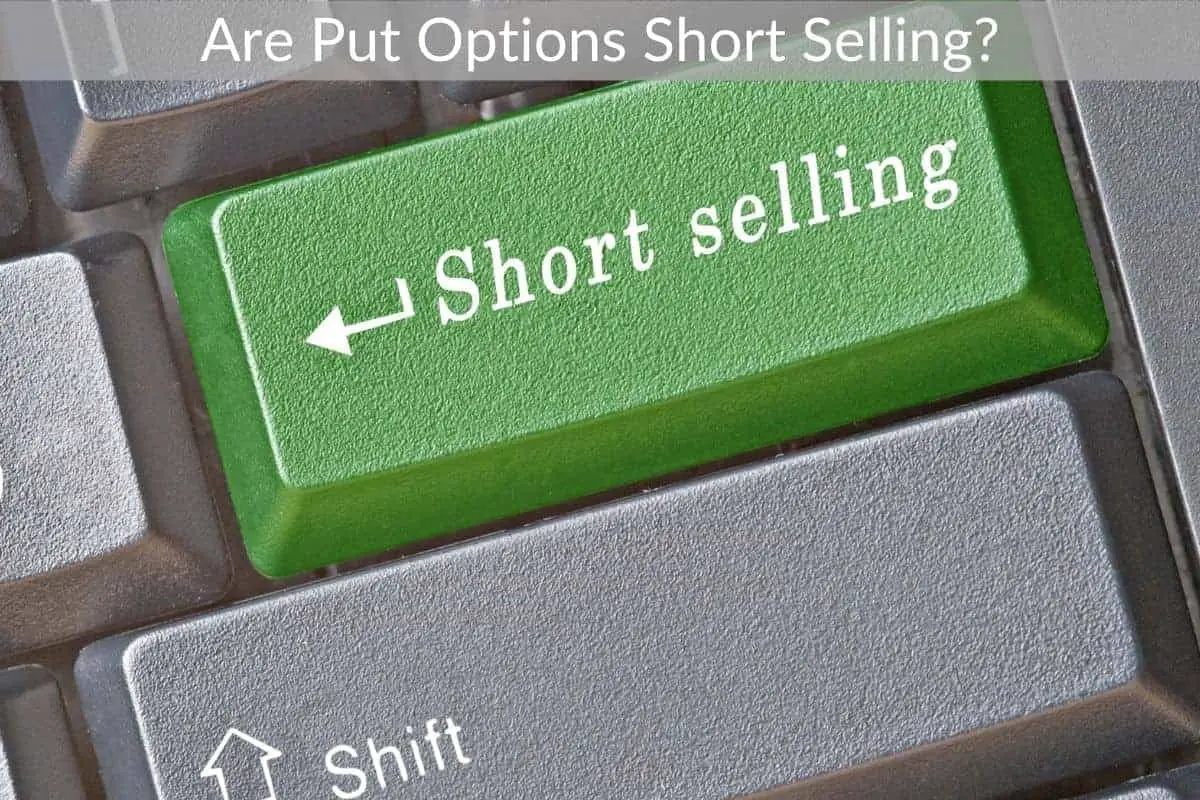Table of Contents
*This post may contain affiliate links. As an Amazon Associate we earn from qualifying purchases.
Are you new to trading options? If so, it’s a good idea to make sure you fully understand them.
Many people wonder if put options are the same as short selling.
Put options aren’t short selling. With a put option, you have the right to sell a stock for a specific strike price. With shorting, you trade an asset you don’t own hoping that the price drops.
Upon closing the trade for a short sale, you keep the difference between buying and selling the stock. While both methods profit off falling prices, they’re different.
There’s plenty of differences between options and short selling that you’ll want to understand. I’ll help you understand these differences in this article to help you better understand what short selling is and why options are not the same as short selling.
Why Options Aren’t Short Selling
When you buy put options, you gain the right to sell underlying assets at the strike price, giving you the maximum possible loss of what you paid for the options. This factor leads many traders to believe that trading put options isn’t as risky as short selling.
If you want to continue earning money in a declining market, it’s still a possibility for you with those methods but your risk is limited with options. With short selling your risk is virtually unlimited.
When you short sell a stock, you’re in a completely different situation. According to Investopedia, short selling includes the sales of securities you don’t own yet. In other words, you’re selling borrowed securities.
You sell them, then repurchase them later, keeping the difference in cost. Due to how they work, short sales are extremely risky.
Both of these strategies rely on a bearish market, but that doesn’t mean that they’re the same. It would be best if you bet that the market is going to drop in price.
While there are situations where you can profit from both of these strategies, you still need to be careful.
To summarize, there are a few main differences between short selling and put options trading. You’ll want to familiarize yourself with them, so you can come up with investment strategies that work the best for you!
Short Selling vs. Options
Short selling and options are very different, even if they bet on the same market conditions. With short selling, you borrow stock to sell and buy back. With options, you purchase a contract, allowing you to trade the underlying stock.
You also take on unlimited risk with short selling since you don’t know how high the stock price will reach. You’ll need to be sure that the stock will drop in the future so that you can make a profit.
You can apply short selling to various trading assets that are on the market today. However, many traders will often short sell a stock instead of options.
With our options you also want the price of the stock to go down but so you can resell that option at a higher price (or sell stock you own at a higher price).
Additionally, when you buy put options, you own the contract that allows you to trade them- this is not true when making any short sale!
These trading methods come with some risk, although most people prefer put options over short selling. You can develop more strategies, while the loss you could experience can’t go above the price you paid for the option premium when buying the put.
This informational YouTube video can help you understand the differences between these concepts even more:
Can You Short Options?
Many traders also wonder if you can short options. If you can, you could utilize this strategy when the value of underlying securities drops to save your money.
You can short sell both call and put options. Options give you a contract with the right to buy or sell at a specific price before the expiration date.
During that time, you can also short sell. However, it’s riskier than simply working with put options.
So, while you can short sell your options, you may not want to unless you’re a more experienced trader. Short selling is often risky, so it’s best you come up with a solid, reliable strategy to use.
Suppose you want to learn more about short selling options. In that case, I recommend that you read Walker’s Selling Short: Risks, Rewards, and Strategies.
The book covers plenty of strategies that you can use on various assets. You can take the information provided and use it in a variety of situations.
Overall, your options contract should allow you to make short sales if you so choose. You should only use this trading method if you believe the stock price will drop enough for you to make a profit off the difference in value.
What It Means To Short An Option
Since you can short an option, you must understand what this means. When you short an option, you’re borrowing or selling it before you own it.
This method means you only make a profit if the option declines in price before the contract expires.
While this is very similar to shorting a stock, you now have an option deadline. That means the price needs to decline before that date, or you’re sure to lose your investment.
Many traders don’t want to short their options because of this.
Overall, when you short an option, you’re selling an option you don’t yet own. You only profit in bearish markets since the primary goal of this strategy is to pocket the difference in value.
Final Thoughts
To summarize, put options aren’t short selling. Although, you can short sell an option! Many people confuse put options with short selling, which isn’t the same strategy.
With short selling, you’re working with direct stock that you borrow. Put options also bet on a bearish market, so they feel similar to new traders but they aren’t the same.
Trading put options is not as risky as short-selling stock- you can only lose what you spent on the options in the case of put options.
Overall, there’s a time and place for both of these bearish strategies. You’ll want to research your underlying assets and determine where to go next!

